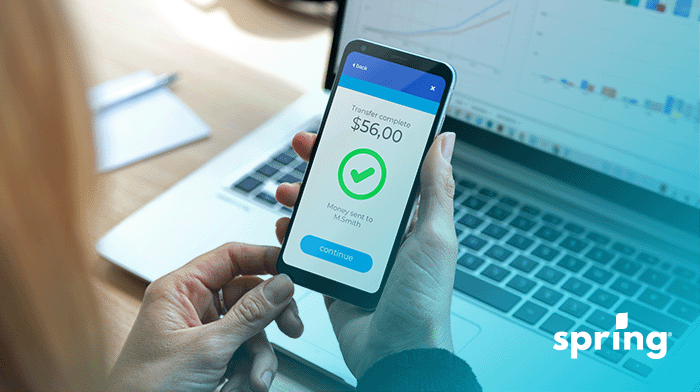Can You Refinance A Car Loan?
Yes, you can get auto loan refinancing in Canada. You can take an existing auto loan and and reduce your monthly payment by changing your loan terms significantly. However, whether or not you’ll get potential saving from your current vehicles car payments will depend current market interest rates, your debt to service ratio, as well as your current loan details. In some cases, interest costs could be cheaper on your remaining loan and refinancing could result in higher payments instead of lower payments.
Auto Refinancing
Auto refinancing is a popular way to improve your payments on a vehicle loan. While keeping the same vehicle, you can get a whole new loan with different rates and terms. This is ideal when you purchase a car at a higher interest rate and are looking to improve your rate without getting rid of your vehicle.
Essentially, how it works is you’ll pay off your vehicle loan with the new loan. You’re then left with only payments on the new loan. Not only can this save you money, but it can also improve your credit score.
How to Refinance
While it’s not always necessary to refinance, it’s very doable. You can refinance with your current lender, a dealership, or a financial institution. Before you refinance, though, it’s important to look at the fine details of your car loan. There may be a clause in there that you’re unable to refinance for a certain amount of time after you purchase the vehicle. It’s usually 6 to 9 months, but it could be longer.
The Top 5 Banks and Refinancing Your Vehicle
Depending on which financial institution you bank with, all of their loan terms are going to be different. This is what makes car loan refinancing great. You have the opportunity to shop around and pick the loan with the rate and term that works for you. Most of these lenders don’t have a minimum loan amount, making approval easier.
RBC Refinancing
The Royal Bank of Canada is one of the top banks in Canada and is a partner with dealerships to offer auto loans. That said, interest rates are changing all the time, and if you’ve had the loan for a while or have improved your credit score, you may be eligible to get a lower interest rate.
Whether your current loan is with RBC or not, you can still apply to refinance. Keep in mind, though, that their rules for car loans still apply. Your vehicle doesn’t have to be new, but it can’t be more than 10 years old.
The application process is relatively simple. It can be done online, over the phone or in person. Plus, you don’t have to accept the offer if you apply and get a higher interest rate than your existing loan. You can just keep your vehicle loan as it is.
Refinancing with Scotiabank
Scotiabank is another bank that offers auto loans with dealerships. It’s actually the #1 option for financing a vehicle in Canada. The vehicle can be up to 7 years old, and the loans range from 1 to 8 years. It might make sense to refinance your car loan for better terms depending on your credit score and financial situation. To do so with Scotiabank is also easy.
When you buy through a dealership, you may be getting the auto loan through Scotiabank, but all the paperwork and loan terms will be dealt with through the dealership. If you’re looking to refinance, that’ll be done with the bank directly. You can apply online, in person, or over the phone.
CIBC Refinancing
You can get a car loan through CIBC or the dealership if you want to purchase a vehicle. If you’re looking to refinance your existing car loan, you’ll contact CIBC directly. They offer competitive loan rates and will help you through the process like the other banks.
The financing terms of a CIBC auto loan go as high as 8 years, and rates are based on the prime rate for the Bank of Canada. While you don’t have to accept any offer if it doesn’t make sense, it’s a good idea to have an idea of interest rates and your credit score before you apply. This goes for any financial institution, though, not just CIBC.
BMO Refinancing
BMO also offers vehicle loans for new or used cars. You can also apply for vehicle refinancing at any time. They offer:
- Competitive interest rates
- Flexible loan terms
- Flexible payment options
- The ability to defer up to 2 payments per year
While the initial car loan can be done through a partnering dealership, refinancing can be done directly through the bank. You can apply online, in person or over the phone. Like with any other bank, an offer is just an offer, and you can weigh your options before making any decisions.
TD Refinancing
TD has their own financing department just for vehicle loans, known as TD Auto Finance. They even have an app that helps you find the perfect vehicle. They’re also partnered with many different dealerships to get you the financing you need.
You can apply through the app if you’re already a TD Auto Finance customer. You can apply online, in person or over the phone if you aren’t. Like the other top banks in Canada, you can access some top rates, flexible financing options and convenient loan terms.
How to Get Approved for Refinancing
Whether you’re looking for debt consolidation or just or just a more manageable payment, refinancing can get you access to competitive rates and financial flexibility. That said, it is important to check the fine print on your current loan before you apply. You want to make sure there are no penalties that lenders charge for refinancing your existing vehicle. Once you’ve done that, you’ll need to fill out a loan application, provide bank statements and do a credit check to confirm your credit situation.
Once you’ve done that, you’ll be presented with the loan offer and you can confirm if you think these are favourable terms. You’ll see the best deals available for your situation as well as the term length and any additional costs. If you offer meets the requirements for your financial goals, you can then use the account number for your current loan to pay it off with the new loan. This could be much cheaper than moving on to your next vehicle.
Rates Across Canada
While interest rates can vary depending on where you live and your credit score, there isn’t much of a difference based on where you live. You’ll notice the main difference in rates is promotions based on locations.
These can happen anywhere. The largest influence on price, though, is taxes and fees. Different provinces and territories in Canada have different regulations and tax rates. This is why you might find that final loan amounts are less while listed prices and rates are the same.
Good Interest Rates on Car Loans
What interest rate you get on your vehicle loan depends on a variety of factors, including:
- Credit rating
- Monthly income
- Credit history
- Age and value of the vehicle
With a good credit score, you’re more likely to get a lower interest rate; with bad credit, you’re likely to get a high-interest rate.
The type of vehicle you purchase is also a huge factor in the interest rate on your loan agreement. A brand new vehicle is going to offer the lowest interest rates, and used will be much higher. This is because there’s less risk involved with a new vehicle.
It comes with no mileage or damage, and most new vehicles also have some very good warranties that will cover any issues. Used vehicles have wear and tear. It’s more likely something could happen to them, putting the loan at risk.
Depending on the prime rate, you can sometimes get loans at 0% interest for a new vehicle. We commonly see them hover around 2% to 3%. In order to get an interest rate this low, it’s recommended to have a minimum credit score of at least 700 and a low debt-to-income ratio. The average car loan is around 5-7%, though. These are all pretty good rates.
Wait Times for Refinancing
When it comes to car refinancing, many lenders don’t require any wait times before you refinance. Other lenders do prefer you to wait at least 6 months before you apply for refinancing. That said, it’s recommended that you wait anywhere from 6 months to a year to allow your credit score to increase and reflect back on your credit report. These things can take a bit to get updated, and having a lower credit score is important when looking for lower interest rates.ed, and having a lower credit score is important when looking for lower interest rates.

Cash Back Car Refinance
When you get a cash-back auto loan, you get a loan larger than your current car loan. Once you pay the auto loan out, you’ll have money left over that you can use for whatever you choose. You can pay off credit card debt or other debt you have. You can also just keep it on hand in case you need it.
Sometimes, this type of loan can end up costing you more money. If you manage to get a lower interest rate, though, you can lower your monthly payments while having some extra cash and increasing your credit score. You can also extend your financing terms, which will also lower your payments. With shorter loan terms, you have higher monthly payments.
Reasons to Refinance
Refinancing your vehicle loan can be really beneficial, depending on your financial situation. Sometimes, you may have the best rate possible, and it isn’t worth refinancing; other times, it can be a great way to save some money. Here are some reasons you may want to consider loan refinancing.
- Lower Interest Rates: This is the most common reason people choose to refinance. Whether you have good or bad credit, if you’ve improved your credit score since you’ve had your car loan, chances are high that you’ll get a better rate. It can also help you pay off the loan faster.
- Extending Loan Term: If you previously got a car loan with a short loan term and want to have lower monthly payments, refinancing could help. Getting a loan with a longer term will reduce your payments.
- Remove a Cosigner: In order to remove a cosigner and take on the loan yourself, you have to refinance the loan. You should have increased your credit score and be able to show pay stubs to prove you’re able to make the payments.
Ultimately, refinancing your loan is a great idea if it helps you save money and decrease your interest paid. Also, paying off your loan early looks great on your credit report and keeps you in good standing. Depending on where you finance, you could also end up with better customer service.
Cons of Refinancing
While refinancing can be extremely beneficial a lot of times, there are some drawbacks. You must weigh your options when you receive any pre-approval offers to be sure you’re saving money.
Prepayment Penalties
While many lenders provide open car loans, meaning they don’t have a prepayment penalty, some of them do. What those penalties are depends on the lenders. If you have a prepayment penalty, you’re likely to incur some charges when you pay off the old loan with the new loan. This could end up costing you more than you save.
More Debt
When refinancing your car loan, it’s easy to end up paying more than you would with your original loan. Whether you refinance with an online lender, a new lender, or get a new car loan, extending your loan terms to fit a new monthly budget can cost more money, even with a lower interest rate. This is because you’re actually paying more over time. You save the most with the smaller loan term.
More Interest Payments
Interest is a tricky thing. You keep paying it as long as you make your regular payments. When refinancing a car loan, you change the loan terms and, therefore, the interest you pay. If you refinance for the same term you have remaining on your vehicle and the interest is lower, you save money. This can also allow you to pay off the remaining balance faster, saving even more.
Getting a lower interest rate with longer terms can be more expensive in terms of interest. While it might seem like you’re paying less with smaller monthly payments, your monthly repayments are costing more in interest since you’ll end up making more payments over time.
Final Thoughts
If refinancing your auto loan is something you’re considering, it’s a good idea to look at all your options. While you don’t have to refinance with your current lender, they may be able to offer you the best deal since you’ve already built a relationship with them. They aren’t your only option, though. Plus, when refinancing your original, you can use a personal loan as well as an auto loan to pay it off.
The thing with auto loans is that, since they’re a secured loan, they’re one of the easiest types of loans to get, even with bad credit. However, once you’ve improved your credit score, you can apply to get a reduced rate. You can also refinance to lower your loan payments or remove a cosigner. No matter your reasoning, refinancing is a great way to take control of your finances and pay off your loan sooner while improving your credit score.








